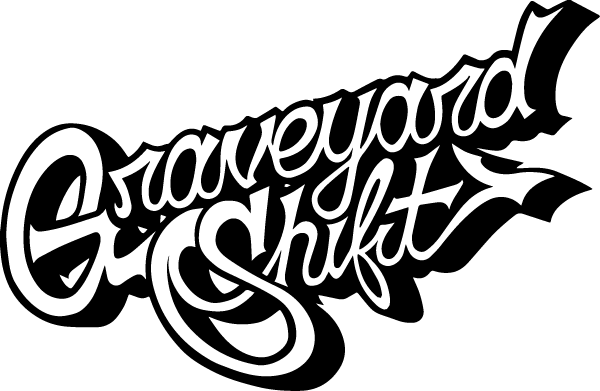Hip-Hop's Evolution: Malcolm-Jamal Warner on Its Anti-Black Shift
Hip-hop has long been regarded as a revolutionary force in the music industry, serving as a powerful outlet for the African-American community to express their struggles, triumphs, and identities. However, as the genre has evolved, some prominent voices have raised concerns about significant shifts that may run counter to its original mission. One of these voices is actor and musician Malcolm-Jamal Warner, who recently spoke out about pressing issues within hip-hop, specifically misogyny and the reckless use of the N-word.
The Voice of Concern: Malcolm-Jamal Warner
Most widely known for his role as Theo Huxtable on "The Cosby Show," Malcolm-Jamal Warner has also carved out a niche as a musician and spoken word artist. His deep-rooted connection to the African-American community is evident in his ongoing commentary about cultural matters that often go unnoticed. Warner's concerns are not new but have resurfaced with urgency, given the current state of hip-hop and its profound impact on young listeners.
A Challenge to Misogyny in Hip-Hop
One of Warner's most pressing concerns is the pervasive misogyny in modern hip-hop. Lyrics that demean and objectify women have unfortunately become a staple in many mainstream hits. Despite the creativity and lyrical prowess evident in many of these songs, the underlying messages can be harmful.
Warner's critique highlights several key issues:
- Promotion of toxic masculinity
- Perpetuation of gender stereotypes
- Negative influence on young listeners' perceptions of women
The Misuse of the N-Word
Another of Warner's focal points is the casual use of the N-word within hip-hop and broader pop culture. Historically a term used to oppress African-Americans, its reappropriation in hip-hop was initially seen as a form of empowerment and resilience. However, Warner argues that its ubiquitous use has diluted its significance and opened doors for misuse by people outside the community. This reclamation, once a symbol of defiance, has now morphed into a controversial norm that sparks divisive debates.
Warner believes that the consequences of this shift are profound:
- Erosion of the term's historical context
- Normalization of racially charged language
- Confusion and misuse by non-black individuals
The Anti-Black Shift in Hip-Hop
According to Warner, these trends collectively contribute to an anti-black shift in hip-hop. Initially, hip-hop was a platform for showcasing black excellence, resilience, and social activism. Today, Warner argues, it often paints a distorted picture of African-American life, overshadowed by themes of materialism, violence, and superficiality.
The Commercialization of Culture
One of the catalysts for this shift is the commercialization of hip-hop. Warner points out that as the genre has evolved, corporate interests have increasingly dictated its direction. What was once a grassroots movement has been commodified, often at the expense of its core principles. This commercial angle not only affects the authenticity of the music but also reinforces harmful stereotypes.
Key effects of commercialization include:
- Emphasis on profit over message
- Reduction of diverse voices in the industry
- Reinforcement of negative stereotypes
The Need for Cultural Responsibility
Warner's powerful critique serves as a call to action for artists, producers, and fans alike. He underscores the importance of cultural responsibility, urging everyone involved in hip-hop to reconsider the messages being promoted. True cultural responsibility means leveraging the platform to uplift and educate, rather than perpetuate cycles of negativity.
The Role of Artists and Fans
Both artists and fans have a crucial role in reversing this anti-black shift and restoring hip-hop's original mission. Warner believes that by making conscientious choices, the community can steer the genre back to a path of empowerment and progress.
Artist Accountability
Artists, often seen as cultural leaders, have an immense influence on societal norms. Warner advocates for artists to be more mindful of their lyrical content and its broader implications.
Steps artists can take include:
- Creating music that uplifts rather than degrades
- Avoiding the glorification of negative behaviors
- Engaging in dialogues about social issues
Fan Engagement
Fans are not merely passive consumers but active participants in the cultural landscape. Warner encourages fans to support artists who promote positive messages and to be critical of those who perpetuate harmful stereotypes.
Ways fans can contribute include:
- Supporting conscious and positive hip-hop artists
- Participating in discussions about the genre’s impact
- Holding artists accountable through social media and other platforms
Conclusion
Malcolm-Jamal Warner’s critique of hip-hop is a timely and necessary reminder of the genre's potential for both harm and healing. As hip-hop continues to evolve, it is crucial for both creators and consumers to reflect on its direction. By fostering an environment of accountability and cultural responsibility, hip-hop can reclaim its role as a beacon of black excellence and social justice. Warner's words serve as a clarion call for a more conscientious approach to a genre that has profoundly shaped the world.

